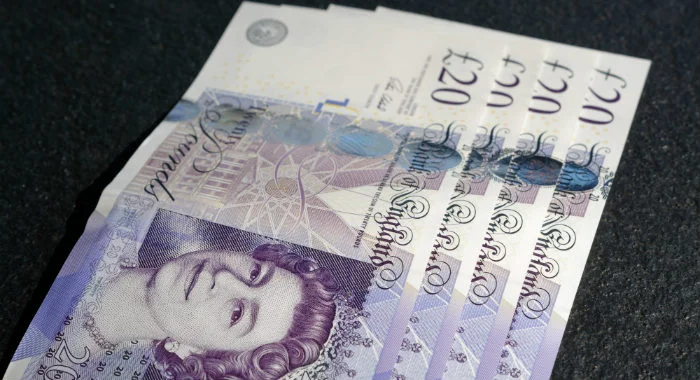Running your own business or being a free trader has a ton of benefits. You work for yourself, you’re your own boss, and you get to dictate how your business is run.
But there are some parts about running your own business that isn’t particularly fun. Making sure that your accounts are up to order and sorting out your HMRC returns is one of them.
Yawn, even saying the word tax can bore people to sleep. It’s confusing and complicated. But if you don’t do it right, you could face fines or worse, an investigation from the HMRC themselves.
And that’s a big threat, isn’t it? To have the HMRC come down on your business like a lightning strike from Zeus. That’s understandable. No one wants the HMRC scrutinising your business after all. But most of this threat comes from a lack of understanding of what an HMRC investigation is.
That’s where we come in. Without any further ado, let’s shine some light on what HMRC investigations are, how to prevent them from happening and what you need to prepare if you’re being investigated.
What are HMRC investigations?
HMRC investigations are exactly as they sound. They’re investigations into your accounts that are carried out by the HMRC at any time.
This is to make sure that everyone is paying the right amount of tax. And with the tax gap currently at £35 billion, the HMRC aren’t going to slow down their investigations any time soon.

If you’re not familiar with the tax gap, this means that the amount of tax that should be paid is £35 billion less than what is actually paid. That’s a pretty big number to ignore.
So, if the HMRC believes that you might be paying the wrong amount of tax, they can investigate you at any time.
Are all HMRC investigations the same?
No. There are different types of investigations that the HMRC can carry out.
1. Full enquiry
This is the most in-depth and serious investigation that the HMRC can carry out.
A full enquiry happens when the HMRC believes there’s a significant error in your tax and will start to review the entirety of your business records. For bigger, limited companies, the HMRC might also look at the tax affairs of all company directors alongside business records.
2. Aspect enquiry
Rather than a full investigation into your accounts, this investigation focuses on a particular aspect. This investigation happens when there’s an inconsistency in your tax returns and is aimed to clear up the errors and make sure that everything is exactly as it should be.
Lost the buzz for your business?
Starting a business is exciting. Succeeding is rewarding. The bit between is hard, repetitive, and full of self-doubt.
The Lonely Middle Club (From Business4Beginners) helps you through it:
Get support and advice from other small business owners
Remove the self-doubt that’s holding your business back
Learn techniques and strategies to grow your business faster
Be inspired with our exclusive ‘swipe’ file and AI-powered tools
No pressure – work at YOUR pace, towards YOUR goals
—
3. Random check
Exactly as the name sounds, this is a random check of your accounts. It can happen to anyone, whether there’s an error in your accounts or not.

Random checks happen because, without a glaringly obvious error, it can be difficult to tell who is paying the wrong amount of tax. Random checks help the HMRC get a better grasp of this and help recuperate losses.
Each year, tax enquires can help the government generate over £20 billion back in losses, so don’t be prepared for it to stop anytime soon.
4. VAT
The HMRC can conduct VAT investigations on VAT-registered businesses to make sure that they are submitting accurate VAT returns. In addition, VAT investigations can also be carried out on businesses that aren’t registered to see if they are liable for VAT.
You are legally responsible for registering for VAT if your business:
- You are actively selling goods or services
- AND, you are selling products or services that are NOT exempt from VAT.
- AND, you live in the UK, or your place of business is in the UK. (For more information on setting up a business in the UK as a non-resident, see this guide)
- AND, you have an annual turnover of more than £85,000
If all of these points apply to your business, you must register for VAT within 30 days. If the HMRC do a VAT investigation and finds that you haven’t registered, you will be accountable for a late registration fee and potential penalties.
5. Employer compliance review
These investigations target PAYE employers to ensure that they make accurate Income Tax and National Insurance contributions on behalf of their employees.
During this type of investigation, HMRC can also look at payroll records, employment contracts and other relevant documentation to ensure employers set up their employees correctly.
If you work with contractors or freelancers, you’ll want to get familiar with IR35 guidelines, so you don’t get caught out with a disguised employee during this process.
How do I know if HMRC is investigating me?
The HMRC will notify you – or your accountant – if you are being investigated. There are no secret investigations. If the HMRC is carrying out any of the above three checks on your company, they’ll tell you about it.
Your notification will arrive by an official investigation letter or phone call. During this, the HMRC will tell you exactly which parts of your account and return that they want to look at. This includes areas like:
- How much tax you currently pay
- Your accounts and tax calculations
- Your Self Assessment tax return or Company Tax Return
- PAYE records and returns if you’re an employer
- Your VAT returns and records if you’re VAT-registered
If you haven’t received a notification, you’re in the clear for HMRC investigations. But if you’ve received one, we’ll cover how you need to prepare in the next section…
What are the stages of an HMRC investigation?
HMRC investigations involve 6 key stages.
1. Notification
All investigations (regardless of type) start with a notification. Here, the HMRC will let either you or your accountant know via letter that you are being investigated. The letter will also let you know:
- What type of investigation your business is facing (i.e. a full inquiry)
- The specific information or documents they require
- The deadline to supply the documents
At this point, the inspector can also request to visit you at your, or your accountant’s, office.
2. Preparing information
This is where you use the notification letter to perform the world’s most boring and scary treasure hunt. Or, in simple terms, it’s where you gather all the documents and information that the HMRC requested in their notification letter.
In some cases, the HMRC might also interview accountants or company directors.
3. Communication
Throughout this stage of the investigation, the inspector will communicate frequently with you or your account, keeping you informed of the progress and requesting any further insights or information that might be needed.
4. Assessment
Using all the evidence gathered, the inspector will now see if you have any owed (or overpaid) tax – and calculate any fine or penalties that you might be liable for.
5. Resolution
Once the assessment is complete, you will get a letter summarising the HMRC’s findings and the next course of action. For example, if you have underpaid your tax, you will receive a figure of how much you owe to the HMRC, as well as any fines and penalties for inaccurate tax submissions.
6. Dispute
If you disagree with any of HMRC’s findings, you have the right to appeal. If you are going down this route, we recommend having an accountant handle the dispute process for you.
If you agree with the HMRC’s findings, you will sign the resolution, pay the charges and move on.
How to prepare for your HMRC investigation
Getting a letter from HMRC isn’t great news. But the good thing is that they will give you a list of all the information and resources that they need from you. The HMRC will also provide you with a date where all this evidence is due, usually 30-25 days from the date of your notification.
If you don’t send all the requirements by this date, you can face further fines and penalties. It’s better to just send what they ask.

In some investigations, the HMRC may also request a meeting, phone call or even to visit your offices. This doesn’t always happen though, and you are free to get professional advice to guide you through these instances.
So, here’s what you can do to make sure that your HMRC investigation goes as well as it can.
1. Read your notification letter very carefully
The notification letter that HMRC send when you are being investigated outlines all the key information that you need to know about the case. This includes what type of investigation they are conducting, and the information that they need for you.
Before you panic and start scrambling around at your accounts, make sure that you slowly read and digest the letter in full, so you know what to expect and what to prepare.
If you have an accountant, go through the letter with them. If you don’t already have an accountant, we’d recommend getting one to make the investigation process as smooth and pain-free as possible.
2. Make sure your accounts are in tip-top shape
This should be a requirement for any time of the year. But if the HMRC is doing an investigation, particularly a full or aspect inquiry, then you might want to consider just triple checking that all the information is correct and up-to-date.
The honest truth is that mistakes can happen. Particularly if you’re doing your own bookkeeping.
One way to minimise this is to invest in accounting software that can keep electronic records and automatically do the sums for you. Error-free.
To make things easier, we’ve also reviewed the best accounting software on the market right now. If you’re self-employed, these are the best accounting platforms available.
Top-Rated Accounting Software:
| Accounting Software | Cheapest Package | Ease Of Use | Our Rating | Review | Official Site |
|---|---|---|---|---|---|
 | £19/mo | Excellent | 9.4 | Read Review | Visit Website |
 | FREE | Outstanding | 9.3 | Read Review | Visit Website |
 | £12/mo | Excellent | 9.3 | Read Review | Visit Website |
3. Keep all records – and make sure they’re backed up
As well as ensuring your accounts are in the best order, you’ll want to conduct an audit on your records. When running a business, you should be keeping all documentation and receipts of:
- All the money the company receives, including invoices, loans or grants.
- All the money spent by the company, including bills, services, cost of materials etc.
- Any assets owned by the company
- Any debts that the company owes (or is owed)
- The stock the company owns
- All goods brought and sold
For peace of mind, we’d recommend making sure that all of these are backed up and stored online, so they can be grabbed and accessed easily by anyone who requests them, like the HMRC…
4. Send the HMRC all the requested information
The HMRC have already sent you a list of everything they need from you in their notification letter. Once you’re satisfied that all your accounts are up-to-date, the next important thing is to send this over before the deadline.
The HMRC will take care of the rest from there.
If anything else is needed, they’ll get back in touch. That’s it. You don’t need to panic, all that’s left is to carry on as normal while you wait for the verdict.

That’s it. Seems pretty simple right?
But of course, if you don’t want to deal with this yourself, you can always hire an accountant to help you out. They’ll have years of experience in bookkeeping and keeping your accounts in your best shape and will be able to advise you through every step of the HMRC investigation.
Just make sure that you hire the right accountant for your company. If you’re unsure, ask these 5 essential questions before making your hiring decision.
How long does HMRC have to investigate?
There’s no set time limit for how long the HMRC have to complete an investigation. It, unfortunately, goes on as long as it needs to.
For relatively simple cases, this could be cleared up within weeks. In more complex cases, you could be facing months of investigation. A full inquiry could even be over a year long. And naturally, the longer an HMRC investigation goes on, the more it’s likely to cost you.
The good news is that there are time limits on when the HMRC can start an investigation. Full warning though, it’s a rather big timeframe.
Basically, the HMRC has an entire year to start an investigation from your tax submission deadline.
So if your submission deadline was January, they would have until the following January to submit a claim.
If you’ve lasted a year, you’re in the clear! It’s just the following year you need to worry about.
But if the HMRC submit an investigation, they can access records from the past 4 years. If there’s evidence of intent to mislead or submit errors, the HMRC can go up to 6 years back. For serious fraud cases, up to 20 years of records can be investigated.
How do I stop HMRC investigation?

You can’t stop an investigation from happening. Sorry, but there’s nothing you can do about it.
You can reduce the chances of being investigated by keeping your accounts up to date and accurate at all times.
Whether you’re doing this all yourself, using an online accounting service or hiring an accountant, this is the only real way to keep HMRC investigations at bay.
Sadly, there’s nothing to be done about random checks. They are, after all, random. It’s all down to chance.
Can HMRC investigate a dissolved company?
Yes. The HMRC can investigate a dissolved company.
Sorry to say that, dissolving your company isn’t a get out of jail free card for an HMRC investigation. If the HMRC feels like your business is worth investigating, they can apply for it to be restored to the register.
It’s a relatively unlikely event though.
Nevertheless, the main takeaway here is that even if you have a dissolved company, you need to keep records for up to 6 years in case of an investigation or any inquiries that might happen.
What are the consequences of an HMRC investigation?
Once the HMRC finishes their investigation, they’ll send you the outcome by letter. This will detail everything that they believe needs to be repaid to them.

If they think you’ve paid the wrong amount of tax by a genuine mistake (hey, it happens!), you’ll normally just have to make up the difference within 30 days. It’s a relatively simple process and easy to resolve. Sometimes, the mistakes can be so minor that you won’t even notice the difference.
Note the sometimes though. It depends on every company and situation. I’m in no way guaranteeing this for you.
However, if the HMRC believes you’ve deliberately falsified your return, you will be fined a penalty. This means you won’t just have to make up the difference in tax, but you’ll also be charged an extra 15-100% on top of that for your mistake.
In some cases, the HMRC can charge up to 300% penalty. It may seem harsh, but what other way will businesses learn to get their tax done right? If the HMRC were lenient, everyone would avoid their tax.
For more serious cases, like fraud, you might also face criminal prosecution. But this is highly unlikely for small businesses and the self-employed.
If you don’t agree with the outcome, you can appeal it within 30 days. If you choose to do this, it’s recommended to seek the advice of an expert to help build your claim. Otherwise, it’s best to just accept your fate, pay your dues and move on.
There could be worse repercussions out there. Trust me.
Top-Rated Online Accountants:
| Accounting Software | Cheapest Package | Value For Money | Our Rating | Review | Official Site |
|---|---|---|---|---|---|
 | £24.50/mo | Excellent | 9.4 | Read Review | Visit Website |
 | £42/mo | Good | 9.3 | Read Review | Visit Website |
 | Variable | Good | 9.1 | Read Review | Visit Website |
HMRC investigations in a nutshell
The HMRC have a right to investigate your accounts at any given time to ensure that you’re paying the right amount of tax.
There are three types of investigation:
- A full inquiry, which explores all of your accounts
- An aspect inquiry, which looks at a particular part of your accounts
- A random check, to ensure your accounts are as they should be
The HMRC has one year to notify you of an investigation from your tax return deadline and can look as far back as 4-6 years. Your notification of the investigation will detail everything you need to send to the HMRC.
Once the investigation is complete, they will send you an outcome and the amount owed to them. This will be the difference in tax, as well as any penalties they determine.
The best way to prevent an HMRC investigation from happening is to keep your accounts accurate and up to date. For more help and information, visit our accounting tips here.







